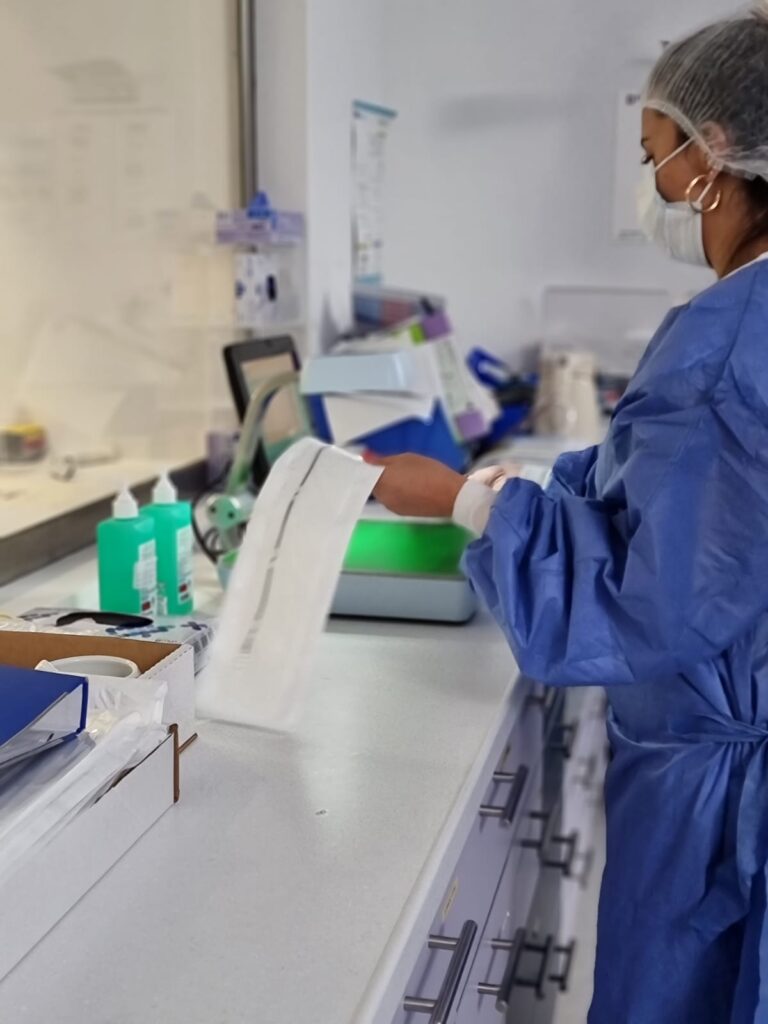Solving the “Black Hole” of Operating Rooms with Accurate Documentation of Each Medical Device or Implant
Surgical implants and other accessories inserted into a patient’s body during surgery need to be accurately identified and documented to help improve hospital operations. IDENTI Medical has developed a machine learning system that recognizes each item with a high degree of accuracy – thus reducing the burden on nurses and increasing patient safety. An interview with Shlomo Matityaho, IDENTI Medical CEO, as part of a 2022 leading artificial intelligence companies ranking performed by”Calcalist”, Israeli daily business newspaper.
An operating room is a familiar and well-known work environment for the medical professionals who work in it. But unlike other work environments, such as factories, the surgical environment is dynamic and unpredictable. Whether at a manufacturing plant or a high-tech company, the operations schedule is planned many months ahead and staff prepares accordingly. Sometimes in an operating room there is no way of knowing what will happen in the next hour. Some surgeries and procedures are planned, but many of them are done in emergency circumstances, for example, when people from a car accident or a terrorist attack arrive at the emergency room.
Although the team of doctors and nurses also perform emergency surgeries with admirable professionalism, when it comes to the operational management of hospitals, the picture changes.
“The task of identifying the items used in the operating room, such as implants and other accessories inserted into a patient’s body, is the responsibility of the nurse whose job is first and foremost to care for and protect their patients,” explains Shlomo Matityahu, CEO and founder of IDENTI Medical, an Israeli startup that has developed an advanced system for safety and medical inventory management.
“When the nursing staff is also assigned logistical tasks such as inventory management, it takes up a lot of time that is deducted from patient care. The existing tools for monitoring inventory are also inefficient and unsuitable for the medical world, which does not have standardized part numbers. As in the case of medications, so too for medical implants: it is not enough to document the part number of a product. Additional crucial information must also be documented in the patient’s file, such as expiration dates, and serial and batch numbers in case of recalls and more. The medical staff must either complete information manually or use complicated software. The result is risk to patient safety, difficulty in financial management of operating and procedure rooms, and inefficient management of medical inventory.”

What are the financial implications?
“In each operating room, on an average shift, about 100 medical products are consumed. For implanted items the cost of a single item ranges from a few tens of dollars to $40,000. Adding to the problem is that 25% of the procedures are not planned ahead of time. The pressure factor certainly does not help the proper documenting of all products, which makes it difficult for the hospital to quantify the cost of the surgery both for internal financial accounting and for charging insurance companies.”
What are the health effects on patients?
“When you do not document what exactly goes into patients’ bodies, the result can be detrimental to their safety. We saw an example of this in 2019, when the FDA called for a recall of breast implants and tissue extenders from Biocell, made by Allergen. The requirement was to locate and alert all women who received these recalled implants. After a year of searching, Allergan had to announce that it had no information on 52,000 of its implants, meaning that today tens of thousands of women unwittingly walk around with a ticking bomb. The implants can cause a rare form of cancer that has already affected more than 570 implant recipients, 33 of whom have died as a result.”
No need to scan – snap a photo instead
Matityahu, who over the years has gained an in-depth understanding of operating rooms, set out on a research project to identify a possible solution to the problem. “With our experience in the field, we discovered several key factors. For example, relying on the nursing staff as part of the documentation/logistics process is wrong. Their job is to care for their patients, not to manage inventory registration. In addition, existing computer systems are not suitable for inventory management because there may be several barcodes on a single item and there is a lack of uniformity between suppliers. In addition, when an implant arrives to the operating room, it is necessary to make sure that it is valid (expiration date) and in good condition to use (no recall notice).”
So how did you come up with a solution?
“We decided to change our approach. Instead of requiring the nurse to scan an item—as if she were a cashier at the supermarket—all she has to do is take a photo of it using our equipment. Everything else is done by our system, which resides in the cloud and is based on advanced image processing and machine learning algorithms, allowing it to identify each item in real time.”
“Now comes into play our expansive database of medical products, increasing our precise item detection capability. Our holistic solution makes it possible to manage all inventory. The result is that hospitals know exactly what was implanted in each patient in accordance with FDA requirements. They also know exactly how much to charge insurers.”
“The significant improvement in inventory management capabilities leads to a decrease in inventory loss due to expiration and other reasons—loss that currently reaches 5-7% of inventory. Accurate and effective management has enabled the hospitals we work with reduce inventory by 30-40%. Needless to say, huge savings.”

What happens in the case of a recall?
“Because the system records all the relevant information about each item, such as production date and batch number, if there is an implant recall, IDENTI’s implant tracking technology means that the hospital knows exactly which patients received the recalled items. In addition, if there are expired items in stock or a recall has occurred, the system will immediately send an alert. No need to rely on whether the staff may have heard of the recall or not. This is how we help medical institutions keep patients safe.”
IDENTI Medical was listed on the Tel Aviv stock exchange in June 2021 and in early 2022 won an innovation award for the solution it developed. “The whole system is based on technologies we have developed in-house and we already have seven patents,” says Matityahu. “The Israeli market really likes our solution, and we are in all the hospitals in the country. Apart from that, the system is also employed in the United States, France, Germany, Mexico and a few other countries. We have also opened a subsidiary that deals with marketing and distribution. We are happy to say that our original vision has been realized: our system is completely changing the way logistics and inventory is documented in operating rooms throughout the world.”
Link to the Hebrew version



